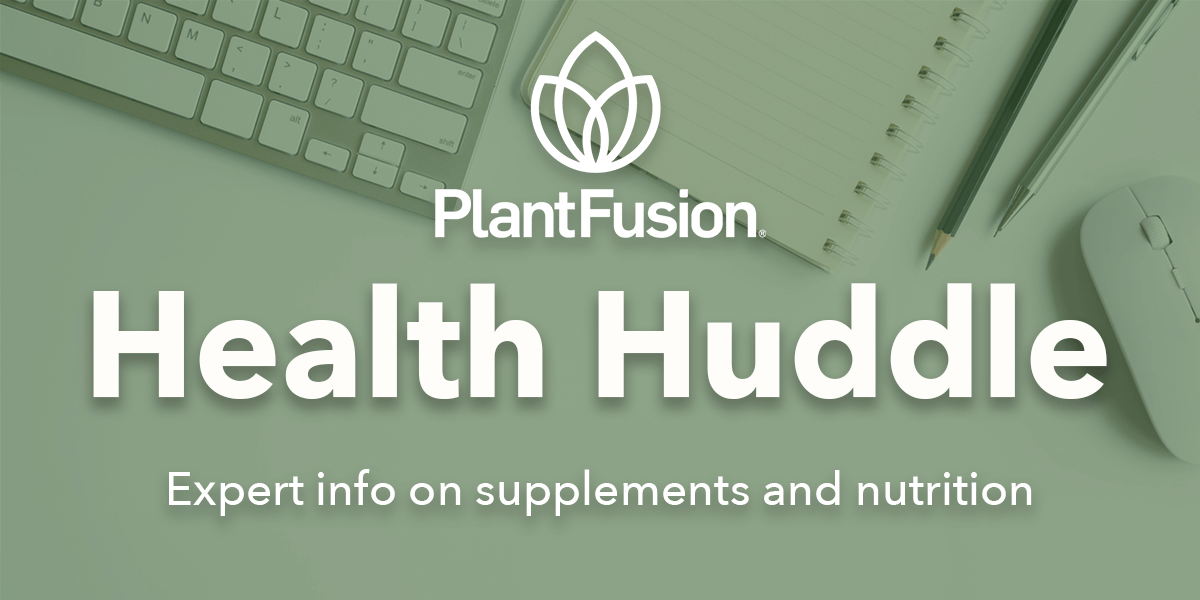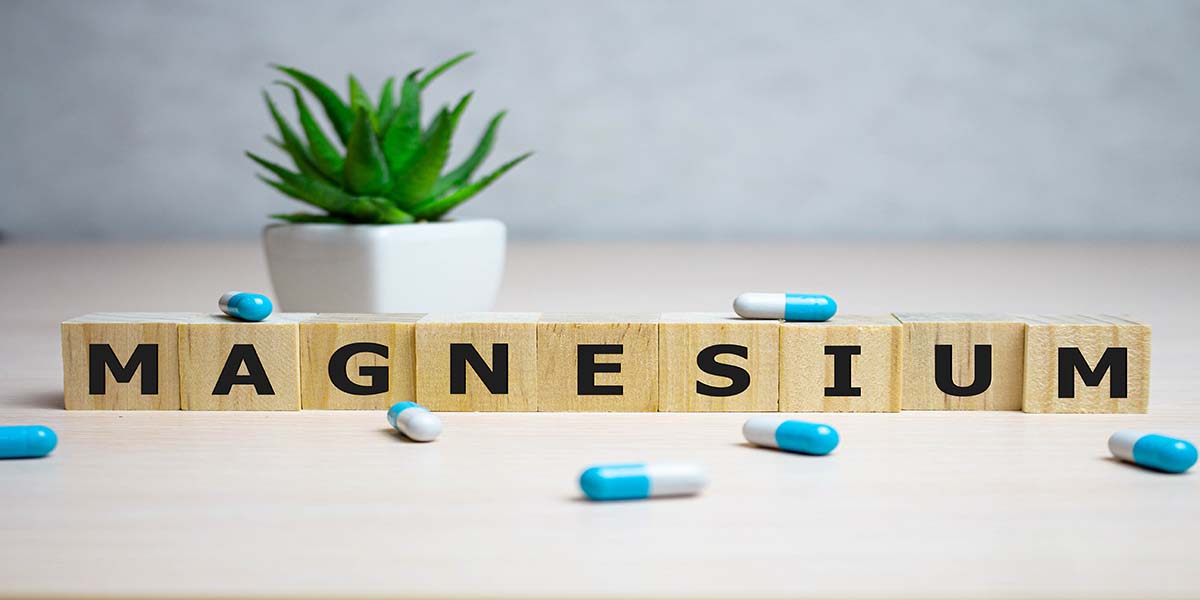Recently, there has been a lot of buzz as we have discovered the relationship between gut health and mental health. Although probiotics are often the focus of these studies, research shows how nutritional deficiencies (so common in the American diet) can also affect our mental and emotional health.
One essential mineral that has been flying under the radar for many years is magnesium. More and more people are starting to understand how important magnesium actually is. As consumer awareness of the connection between nutritional deficiencies and mental health continues to grow, magnesium is getting a closer look, and what we're learning is, it's kind of a big deal.
WHAT IS MAGNESIUM?
Magnesium is a mineral, and like most other minerals (such as sodium, calcium, and potassium) it is not made by the body, so we must get it from food.
Magnesium is involved in hundreds of vital processes within the body, such as protein synthesis, muscle and nerve function, blood glucose control, blood pressure regulation, proper enzyme function, food metabolism, and the proper transmission of your body’s nerve impulses.
More than half of the magnesium in the body is stored in the skeletal system; the rest is in muscle, soft tissues, and bodily fluids. Every organ in the body, especially the heart, muscles, and kidneys, needs magnesium.
SOME FUN HISTORICAL FACTS ABOUT MAGNESIUM
- Magnesium was first discovered outside of the Greek city of Magnesia. (I bet you've already made the connection.)
- Milk of Magnesia – which is magnesium hydroxide – is an over-the-counter product that is commonly used to help with constipation and/or heartburn. Now we know where it got its name.
- There is a famous Epsom Spring in England that has been used since the 1600's as an internal remedy and purifier of the blood. That explains how Epsom salt – or magnesium sulfate – got its name.
- Marie de Medici, of the famous and powerful Italian family, was a big fan of the Epsom Spring, saying it is beneficial to all but, especially, "by persons of quality.”
There is a magnesium ion present in the chlorophyll molecule of every living green plant.
WHY WOULD I NEED MAGNESIUM?
According to National Health and Nutrition Examination Survey (NHANES) data, as well as the World Health Organization, roughly half of the population in the United States are magnesium deficient. As usual, our modern diet of processed, refined foods is a major contributor to this deficiency. Although this is mainly due to processing methods, the use of chemicals in our water supply as well as decreasing magnesium levels in soil, wheat (see below chart) vegetables, and other food crops over the past 30+ years also play a role.

Rosanoff A, Weaver CM, Rude RK. Suboptimal magnesium status in the United States: are the health consequences underestimated? Nutr Rev. 2012;70(3):153-164. Doi:10.1111/j.1753-4887.2011.00465.x
According to A. Rosanoff, PhD., the Director of Research & Science Information Outreach Center for Magnesium Education & Research in Pahoa, HI, it is estimated that the magnesium content in various foods and vegetables has declined 25% to 80% since pre-1950. Magnesium stores are depleted by stress, excess alcohol consumption, eating processed foods, strenuous exercise, and taking certain prescription medications... this most likely puts most of the population at risk!
Additionally, our need for supplemental magnesium may be evolutionary. Our Paleolithic ancestors were thought to have consumed around 600mg of magnesium per day, more easily obtained through their diet of unprocessed meat, fish, eggs, vegetables, fruits, nuts and other non-refined grains.
Considering our present-day challenges, the typical magnesium intake for people in the United States currently sits somewhere around 260mg - 350mg per day, meaning most Americans aren't getting enough.
HEALTH BENEFITS OF MAGNESIUM
Here are the TOP 3 biggest benefits of magnesium:
-
Sleep - Magnesium plays a role in maintaining gamma-aminobutyric acid (GABA) levels†. GABA is a neurotransmitter that quiets nerve activity and helps your body to relax. Using magnesium for sleep is a natural way to help you sleep.
-
Anxiety – A vicious cycle is that stress can cause magnesium deficiency, and low magnesium levels can contribute to increased stress levels. This dynamic might be due to magnesium’s effect on the hypothalamic-pituitary-adrenal (HPA) axis, which includes a set of glands that regulate our reaction to stressful situations. One study even found that 450mg of magnesium was equally as effective as antidepressant medication in improving mental health symptoms.
- Headaches - Low levels of magnesium has been linked to migraines. Magnesium plays a role in neurotransmitter function and blood circulation, regulating the blood vessel constriction that often leads to severe headaches and migraines. It has been demonstrated that regular magnesium supplementation has helped to reduce both the frequency and intensity of migraines.
HOW TO TAKE MAGNESIUM
Although magnesium is found naturally in many foods, as we discussed above, the amounts are far less than we need. That is why magnesium supplementation can be so helpful.
Magnesium supplements are available in many forms, but they have different absorption rates and bioavailability (the amount absorbed). Here are the most commonly used types of magnesium in dietary supplements:
There are even some Branded Magnesium Products!
Due to the growing body of research we have scattered throughout this post, companies have been spent the time and money to patent and trademark some superior forms!
Aquamin®, for example. – This branded magnesium uses pristine sea water and whole food marine red algae as a source of magnesium, collected from the North Atlantic waters near Ireland. It has tested to show enhanced bioavailability. PlantFusion's Vegan Plant-Based Calcium features this high quality form of magnesium.
Whether you are a stay-at-home mom losing sleep every night wondering when your kids will fully go back to school, or a serious athlete leaving it all on the floor after every workout, magnesium will be your friend.
Find a brand you love and start taking it regularly – pretend you are one of our Paleolithic ancestors as you start feeling the benefits!
Check out PlantFusion's products featured in this blog to increase your magnesium intake today!















